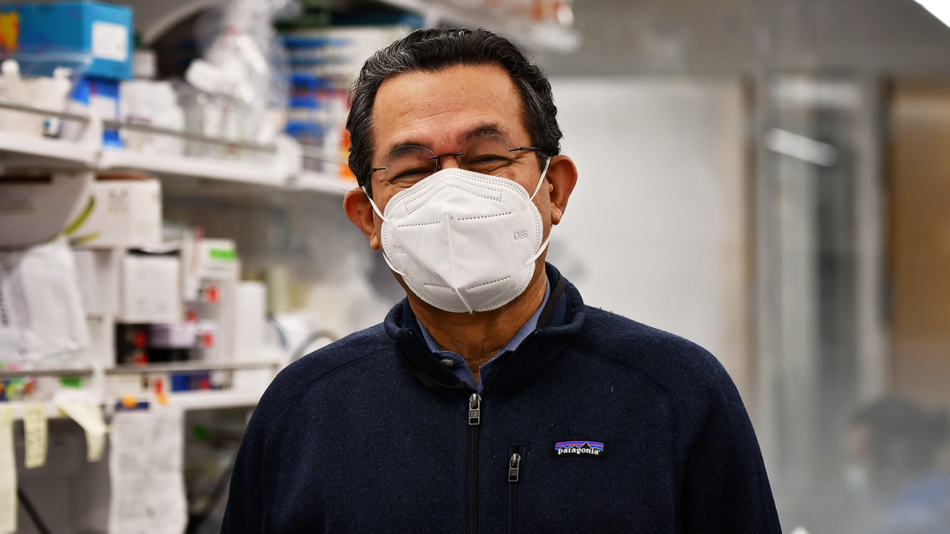Didier Portilla, MD Lab
PRIMARY APPOINTMENT

Professor of Medicine, Nephrology
Contact:
UVA Division of Nephrology
P.O. Box 800133
Charlottesville, Virginia 22908
Telephone: 434-243-6648
Fax: 434-924-5848
Email: dp2bs@virginia.edu
EDUCATION AND TRAINING
- M.D., Universidad del Valle Medical School, Cali, Colombia
- Internship in Medicine: Charity Hospital of New Orleans, Tulane University School of Medicine New Orleans, Louisiana
- Residency in Medicine: Luke’s Hospital, Washington University School of Medicine, St. Louis, Missouri
- NIH Postdoctoral Research Fellow in Nephrology, Washington University School of Medicine, Barnes Hospital St. Louis, Missouri
FUNDED PROJECTS
- National Institutes of Health 2RO1DK075976 04/01/2013-3/31/2018 Role of PPARalpha in acute kidney injury Role: Principal Investigator
- VA Merit Review March 2016- September 2018 Role of PPARalpha in renal fibrosis Role: Principal Investigator
- 1R01DK104963-01A1 (PI: R. Sharma) NIH/NIDDK Role: Collaborator 10% effort. Regulatory T Cells in Acute Kidney Injury The major goal of this project is to understand the role of PD-1 expressed by regulatory T cells during protection from acute kidney injury; we will also determine the role of the PD-1 ligand PD-L1 and the IL-10 receptor on the target cells during protection from renal injury. 12/15/2015 – 11/30/2020
- T32 DK0792922 (PI: Okusa) Role: Associate Director NIH/NIDDK Kidney Disease and Inflammation. The purpose of this grant is to support the training of postdoctoral fellows in the basic and clinical science of kidney disease and inflammation 07/01/2016-06/30/2021
- Role of Intracellular complement in kidney fibrosis. Start-up funds
RESEARCH AREAS
- Pathogenesis of acute kidney injury: PPAR alpha’s role in AKI and pericytes’ role in progressive fibrosis. Role of intracellular complement in kidney fibrosis.
RESEARCH SUMMARY
My research aims to understand the cellular and molecular mechanisms contributing to proximal tubule cell death during Acute Kidney Injury (AKI) and progressive kidney disease. Our laboratory has elucidated increased lipotoxicity’s role in the pathogenesis of proximal tubule cell death and tubulointerstitial fibrosis. We use both in vivo and in vitro models of ischemia-reperfusion and unilateral ureteral obstruction. Our studies support that PPARalpha, a nuclear receptor transcription factor expressed in the proximal tubule and interstitial pericytes/fibroblasts, is an essential metabolic sensor for lipid homeostasis. When stimulated by either a ligand or by using transgenic mice, we find that PPARalpha mediates cytoprotection by reducing inflammation and renal fibrosis. Our work has been funded by an NIH RO1 and by VA Merit Award. It examines the role and mechanisms by which PPARa signaling increases mitochondrial fatty acid oxidation, prevents renal fibrosis, and pericyte to myofibroblast transformation. Our lab is currently studying the part of intracellular complement activation in kidney cells leading to increased inflammation during AKI and AKI to CKD models. We have generated C1r null mice to study the function of C1 complex proteases C1r and C1s. Currently, we are using complement receptor C5aR1 GFP reporter mice where we have shown that renal epithelial cells, pericytes, and CD45 F4/80 cell express higher levels of the C5aR1 receptor in animal models of fibrosis. We have used these mice to cross them with FoxD1 Cre and LysM Cre to examine the role of tissue-specific deletion of C5aR1 during kidney fibrosis. We have performed RNAseq analysis of the GFP labeled Macrophages isolated from these C5aR1 GFP reporter mice and shown that they express high levels of genes associated with NABA microsome, metabolic syndrome, iron recycling, cell adhesion, and increased production of inflammatory cytokines.


